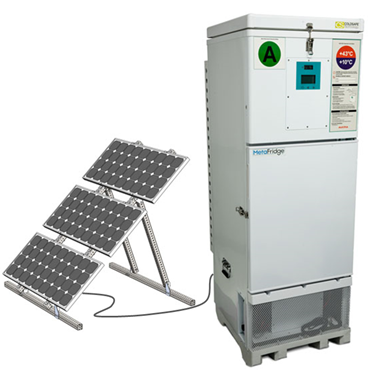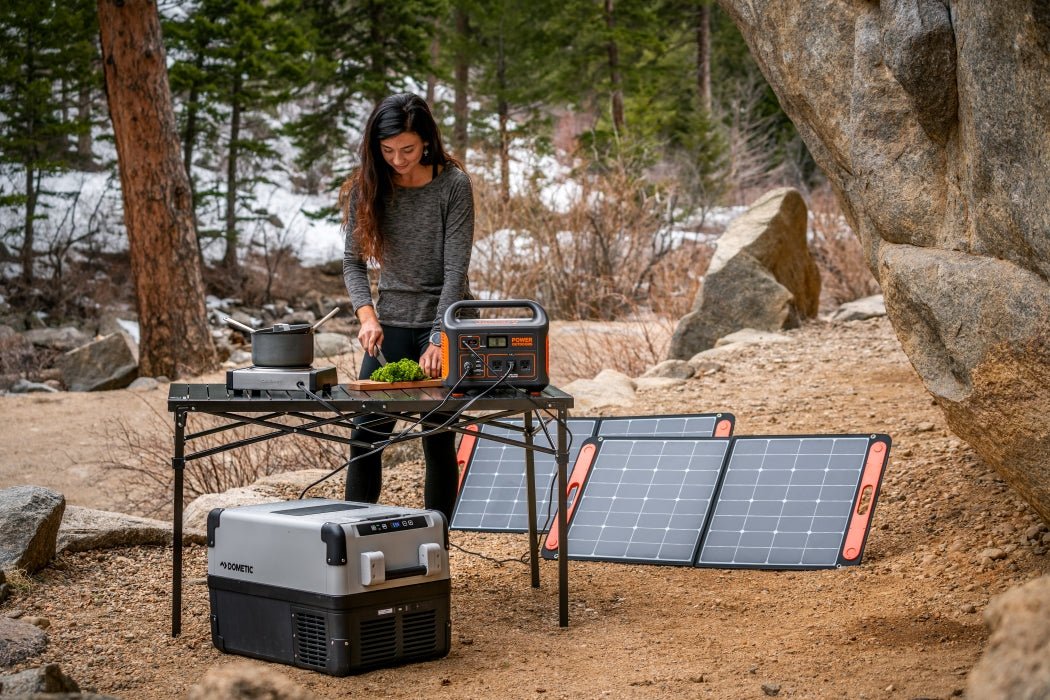A solar refrigerator can be a perfect solution for your off-grid living needs.
A solar refrigerator can be a perfect solution for your off-grid living needs.
Blog Article
Opening the Potential: How Solar Refrigerator Can Transform Your Power Consumption
The appearance of solar fridges provides an engaging possibility to reshape our approach to energy usage. By efficiently making use of renewable solar power, these systems assure not just to minimize dependancy on conventional power sources yet additionally to boost food conservation and security, especially in underserved regions. As we check out the details of just how solar fridges operate and their broad-ranging benefits, it becomes obvious that their integration into day-to-day life might lead to substantial developments in sustainability. What continues to be to be taken a look at are the functional ramifications and choices consumers should think about in this advancing landscape.
How Solar Refrigerators Work
Solar fridges operate by harnessing solar power to power their cooling mechanisms, effectively making use of renewable energies to preserve low temperature levels. These systems generally contain photovoltaic or pv (PV) panels that convert sunlight right into electricity. This power is then utilized to run the compressor, follower, and other parts essential for refrigeration.
The primary system in a solar fridge is the vapor-compression cycle, similar to conventional fridges (solar refrigerator). The compressor presses cooling agent gas, elevating its temperature level and stress. This gas then travels through a condenser, where it launches warmth and condenses into a liquid state. The liquid refrigerant streams into a growth valve, where it quickly broadens, cooling down prior to going into the evaporator. In the evaporator, the refrigerant soaks up warmth from the interior of the refrigerator, hence reducing its temperature.
Solar refrigerators might likewise include battery storage systems, permitting them to run throughout non-sunny hours or in cloudy problems. This guarantees a continual cooling result, making them suitable for numerous applications, specifically in remote areas lacking accessibility to reputable electricity. By incorporating solar modern technology, these fridges contribute to power efficiency and sustainability in food storage and conservation.
Key Advantages of Solar Refrigeration
The assimilation of solar modern technology right into refrigeration systems supplies various benefits that extend beyond simple energy financial savings. Among one of the most significant benefits is the decrease of carbon impact. By harnessing eco-friendly solar power, these systems reduce dependence on fossil gas, adding to an extra sustainable atmosphere. This shift is specifically vital in regions where electrical energy supply is undependable or non-existent, enabling communities to keep food preservation and security.

Additionally, the use of solar power can lead to power freedom, making it possible for users to produce their own power and reduce susceptability to rising and fall power prices. Overall, the fostering of solar refrigeration provides a complex option that not just addresses energy consumption however additionally promotes environmental sustainability and improves food preservation capacities in underserved communities.
Power Savings and Efficiency
With the rising prices of energy and raising awareness of ecological problems, power savings and performance have actually come to be vital factors to consider in refrigeration modern technology (solar refrigerator). Solar refrigerators take advantage of renewable resource resources, dramatically decreasing reliance on standard power grids. By using solar energy, these systems lessen power consumption, making them an economically viable choice for both household and industrial applications
The layout of solar fridges incorporates advanced insulation products and energy-efficient compressors, which ensure ideal performance while using marginal energy. Many solar refrigerator models likewise include programmable setups and smart modern technology that permit users to keep track of and manage energy use properly. This intelligent layout results in minimized electricity costs and reduced functional prices with time.
Additionally, solar fridges are my review here equipped with batteries that store excess energy produced during warm days, enabling constant operation even throughout periods of low sunshine. This capability improves their effectiveness, guaranteeing that food and disposable things are consistently maintained secure temperature levels.
Ecological Effect and Sustainability
Utilizing sustainable power not only improves energy financial savings yet additionally considerably adds to ecological sustainability. solar refrigerator. Solar refrigerators run on tidy, renewable resource resources, reducing dependence on fossil fuels that add to greenhouse gas emissions. This shift in energy usage minimizes environment change influences and cultivates a healthier planet

Furthermore, solar refrigerators are specifically useful in remote locations where power access is limited or non-existent. By offering a feasible refrigeration solution without the need for considerable infrastructure, they promote sustainable growth in underserved areas. This access not only boosts food protection but likewise minimizes food wasting, therefore reducing waste.
Selecting the Right Solar Refrigerator
Picking the ideal solar refrigerator requires careful factor to consider of numerous elements to make certain optimum performance and effectiveness. Evaluate the energy needs based on your consumption patterns. Compute the complete power level needed to keep your things cool, which helps in choosing a device with a proper photovoltaic panel size to fulfill these needs.

One more crucial element is the kind look here of solar refrigerator-- compressor or absorption. Compressor designs are normally extra effective and better fit for settings with rising and fall temperatures, while absorption refrigerators might be better for off-grid applications because of their simpleness.
Last but not least, guarantee the system has reputable solar parts, including panels, batteries, and a cost controller, to ensure lasting performance. By carefully taking into consideration these elements, you can select a solar refrigerator that straightens with your power objectives and adds to sustainable living.
Final Thought
In recap, solar refrigerators represent a substantial innovation in power intake, providing a lasting option to typical refrigeration weblink methods. By using solar power, these systems not only lower reliance on fossil gas but additionally improve food security and lessen ecological influence.
Report this page